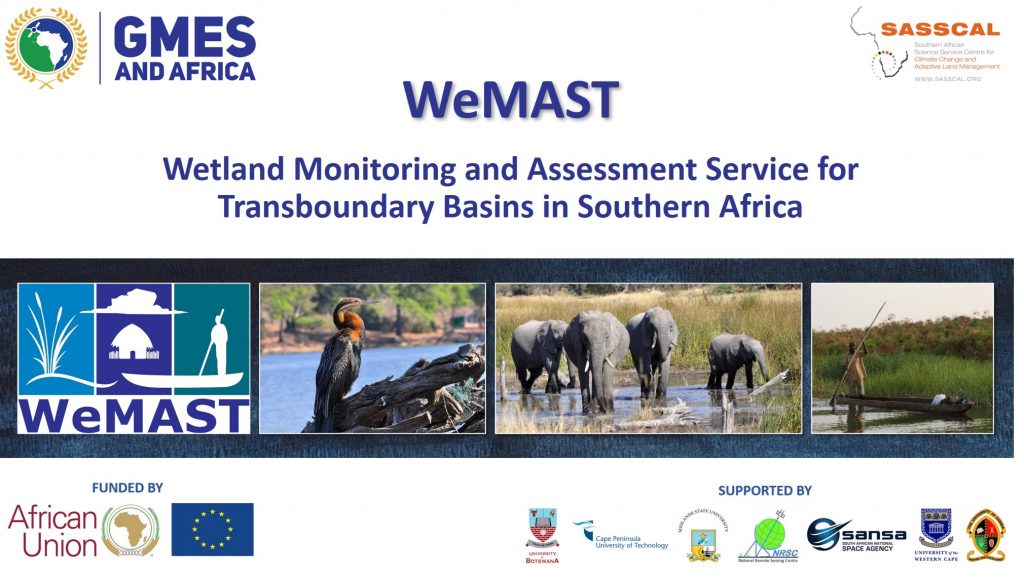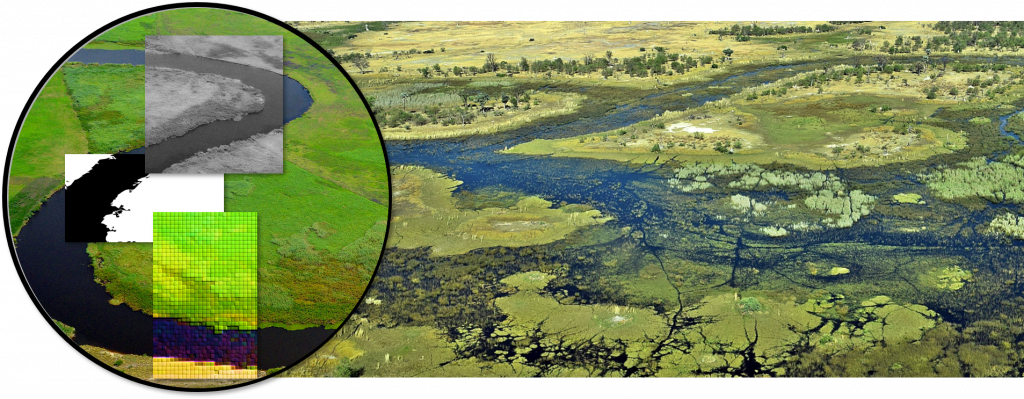SASSCAL, as the lead of the WeMAST consortium, has the pleasure to announce two short courses on Earth Observation (EO) technology. The courses are made possible with funding from the GMES and Africa Support Programme, an initiative of the African Union and the European Commission.

Background
The Wetland Assessment and Monitoring Platform for Transboundary River Basins in Southern Africa (WeMAST) is implemented by a consortium led by SASSCAL, with partners from leading academic institutions and satellite-service providers, South African National Space Agency (SANSA), University of Western Cape, South Africa (UWC), Midlands State University, Zimbabwe (MSU), Zambia National Remote Sensing Centre (NRSC), University of Zambia (UNZA) and University of Botswana (UB).

Earth Observation data can be used to monitor and assess wetlands
WeMAST aims to design, develop and operationalise an integrated Earth Observation (EO) based platform that can provide wetland information services to target groups and end users. The target basins are the Cuvelai, Limpopo, Okavango and Zambezi, covering the following countries: Angola, Botswana, Namibia, South Africa, Zambia and Zimbabwe. As an important component of this deliverable is ensuring human and institutional capacity in accessing, processing and utilizing products of this service.
The training strategy of GMES & Africa support programme highlights that EO deserves continuous training and capability building of specialists because, i) EO technology is dynamic in terms of infrastructure and instrumentation, ii) data specifications vary with changing instrumentations, hence the need to keep up, (iii) processing software are changing or being updated on a continuous basis (iv) to satisfy a dynamic user community and effective ingestion in daily decision making process.
Therefore these two courses
- development for new technologies for wetland monitoring and
- earth observation for wetlands’ monitoring, assessment, and management are aimed at supporting capacity building activities in the context of the GMES & Africa training strategy.
Participants
The courses are targeting:
• River Basin commissions
• Water authorities
• Conservation authorities
• Government departments
• Non-Governmental Organizations
• Universities and Research Institutions
• Private sector
• Local authorities
• Local communities’ representatives
Courses
Development for new technologies for Wetland Monitoring
This course will familiarise participants with earth observation data sources, data fusion and integration techniques and provide an overview of available algorithms for wetland extraction to mention a few aspects. The course will focus on exposing participants to various EO datasets available for wetland monitoring and delineation of wetlands utilizing free data access tools and QGIS.
Date : 16 – 18 November, 2020
Earth observation for wetlands’ monitoring, assessment, and management
The course will focus on use of earth observation data to inform wetland management plans. It will offer a basic understanding of key wetland principles to define and protect the wetland. Management frameworks will be discussed including the RAMSAR framework. Furthermore, the course will explore ways of adoption of EO in conservation and management frameworks and policy development.
Date: 23 – 25 November, 2020
Important Information
Please register below
Deadline for registration is 14th November, 2020.




